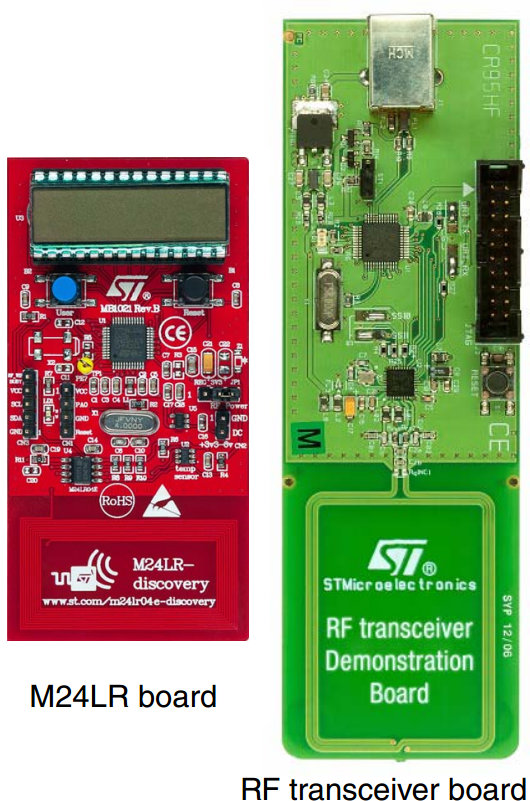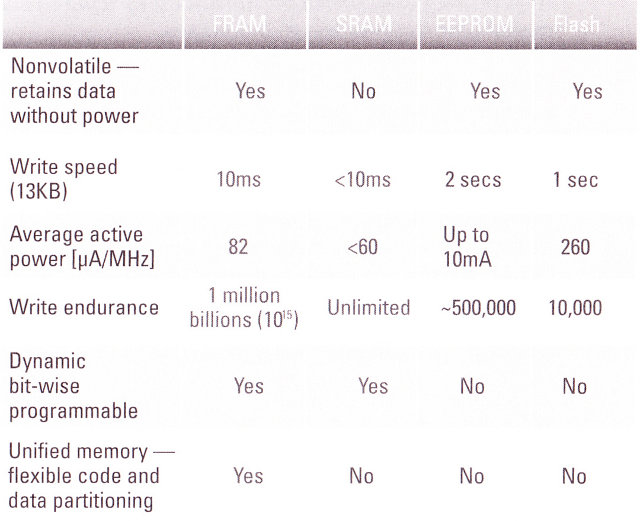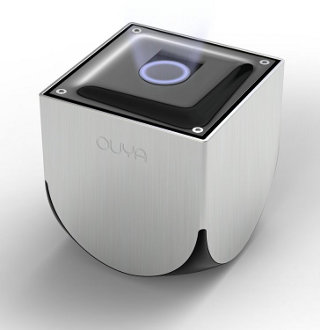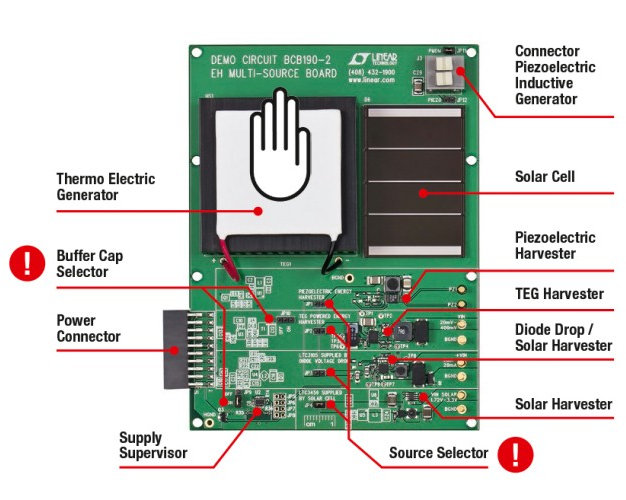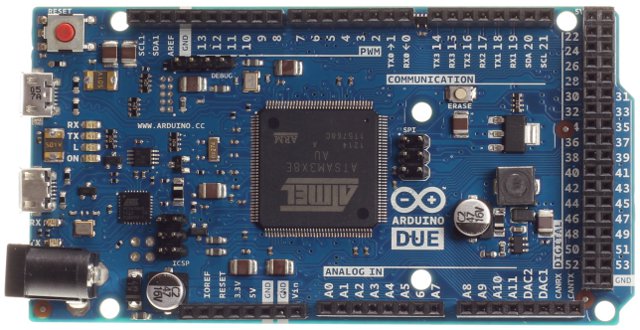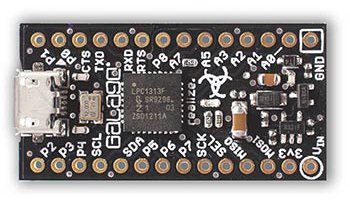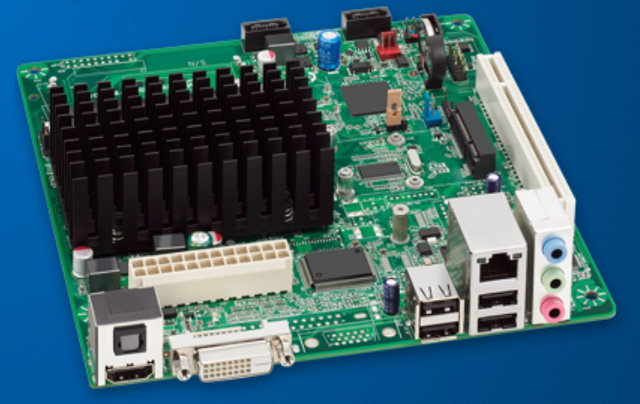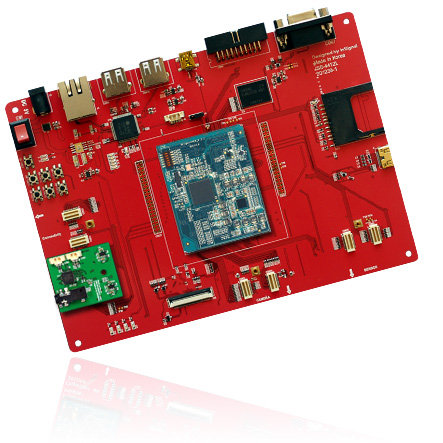STMicroelectronics has announced the M24LR Discovery Kit, a low cost development platform for NFC or RFID applications with energy-harvesting capabilities. This devkit is aimed at accelerating the design and development of batterlyless applications such as phone and tablet accessories, computer peripherals, electronic shelf labels, home appliances, industrial automation, sensing and monitoring systems, and personal healthcare products. The M24LR Discovery Kit consists of two boards: an RF transceiver board with a 13.56MHz multi-protocol RFID/NFC transceiver driven by an STM32 32-bit microcontroller A battery-less board that includes ST’s dual-interface EEPROM memory IC, an ultra-low-power 8-bit microcontroller (STM8L) and a temperature sensor. Here are the key features of the boards: M24LR board M24LR04E-RMN6T/2 Dual Interface EEPROM with I2C and ISO/IEC 15693 RF interfaces, 4 Kbits of EEPROM and password protection in SO8N package STM8L152C6T6 8-bit microcontroller, with 8 Kbytes of Flash memory STTS751-0WB3F, low-voltage digital temperature sensor 20 x 40 mm inductive antenna […]
FRAM (Ferroelectric Random Access Memory) and Texas Instruments MSP430FR57xx MCUs
I’ve recently received a complementary book entitled “Texas Instruments FRAM MCUs for DUMMIES” sent by Mouser, that provides technical and practical information about FRAM (Ferroelectric Random Access Memory) – pronounced F-RAM – and Texas Instruments MSP430FR57xx MCU series which makes use of this relatively new type of memory. FRAM is a non-volatile memory with power and write speed & endurance characteristics that almost matches SRAM capabilities, and leave traditional Flash and EEPROM memory in the dust in terms of performance, as you can see from the table and diagram below. At constant speed, FRAM consumes 250x less than Flash/EEPROM. Please note the FRAM write speed also depends on the MCU used, and a MCU @ 8MHz can write the FRAM @ 1400 kBps (Source: TI). However, you won’t see this type of memory in devices like smartphones anytime soon because the maximum size currently manufactured is 1MB, density is higher […]
$800 OUYA Development Kit Is Available for Pre-Order
As the OUYA is slowly (but surely?) nearing its launch in March 2013, the OUYA Dev Kit can be pre-ordered for delivery in January 2013. The kit costs $800 and includes an OUYA console, 2 controllers and the ODK ( OUYA Software Development Kit). This devkit is targeted at game developers (Users better just wait the $99 version) who will be able to test their games and apps on OUYA hardware before the official release. The ODK should be available for download and the developer portal launched in December, As a reminder, here are OUYA (updated) specifications: Nvidia Tegra3 quad-core cortex A9 processor 1 GB RAM 8 GB of internal flash storage HDMI port (up to 1080p HD) WiFi 802.11 b/g/n Bluetooth LE 4.0 Ethernet USB 2.0 port Wireless controller with standard controls (two analog sticks, d-pad, eight action buttons, a system button), a touchpad Android 4.1 Jelly Bean If […]
199 Euros “Energy Harvesting Solution To Go” Kit with Energy Micro Cortex M3 Starter Kit
If you’re interesting in battery less ultra low power applications, Energy Micro, Linear Technology and Würth Elektronik have announced an energy harvesting development platform early last month. The “Energy Harvesting Solution To Go” Kit is composed of an Energy Micro Giant Gecko (Cortex M3) Starter Kit and an energy harvesting board that is capable of getting enough solar, thermal, piezoelectric or electromagnetic energy to power the MCU board. The power connector shown above connects directly to the Giant Gecko Starter Kit board to provide power. Although there are 4 energy harvesters on the board, only one power source can be selected at a time via jumpers. Several power sources can be selected by using diodes. The board The energy harvesting board offers two integrated energy sources: A solar cell (32mm x 50mm) A thermo-generator (40mm x 40mm). And 2 other external energy sources can be added to the board via […]
Arduino Due Cortex M3 Board is now Available
Announced a little over a year ago, the Arduino (over) Due based on Atmel SAM3U Cortex M3 MCU is finally available for purchase. The specifications of the new boards are as follows: Microcontroller – Atmel AT91SAM3X8E @ 84 Mhz Flash Memory – 512 KB SRAM – 96 KB (64 + 32 KB) Operating Voltage – 3.3V Input Voltage (recommended) – 7-12V Input Voltage (min/max) – 6-20V Digital I/O Pins – 54 including 6 supporting PWM Analog Input Pins – 12 Analog Output Pins – 2 (DAC) Total DC Output Current on all I/O lines – 130 mA DC Current for 3.3V Pin – 800 mA DC Current for 5V Pin – Theoretical 1A, recommended 800 mA Debug ports – JTAG/SWD connector The new board is mostly compatible with the AVR (8-bit) boards, but since the board runs at 3.3V some shields may not be compatible (Arduino Wi-Fi and Ethernet shields do […]
$25 Outbreak Galago – Cortex M3 Open Hardware Development Kit
Outbreak Galago is a tiny development kit based on a Cortex M3 processor that fits a debugger, and is destined for rapid electronics prototyping. The company promotes it as some sort of Arduino board on steroid (MCU wise) and sells for $25 on kickstarter, and less than $10 in 10k quantities. Here are the board specifications: 72 MHz 32-bit ARM CPU with 32KB of flash ROM and 8KB of RAM (NXP LPC1313 TBC) Integrated hardware debugger One high-speed SPI port, up to 36 Mbps One high-speed I2C port, up to 1.5 Mbps One UART/USART with hardware flow-control capability, up to 256 kbps 10 high-speed PWM pins, 6 driven by 32-bit (high-resolution) timers 6 ADC (analog) input pins with 10-bit resolution at over 400 KSa/sec 25 GPIO (digital) input/output pins The form factor and built-in debugger (via USB) are not really new, as those are already featured in devkit such as TI Piccolo controlSTICK, […]
Intel to Give Away 5 Atom D2700 Development Kits to Selected Engineers
As part of its “Eureka! Design Challenges“, Intel is asking hardware engineers to submit ideas about what they’ll do with an Intel Atom D2700 development kit with 2Gb RAM, a 40 GB SSD drive & lots of ports and expansions, and will give one to the 5 candidates with the best project ideas. Here are the key features of this development kit: Development board with the Intel Atom Processor D2700, and IntelNM10 Express Chipset Board Support package from the Linux Foundation’s Yocto Project 2GB DDR21066 MT/s non-ECC memory 40GB SSD, installed, with SATA extension cable Power supply The Intel Software Development Tool Suite (GNU tool compatible) Documentation and software Comes in a mini-ITX chassis with dual independent display capabilities. I’m not sure why Intel is focusing on hardware engineer for this type of project, and I suppose if you have some embedded systems development ideas that interface with external hardware, […]
Exynos 4412 based Origen 4 Quad Development Board Soon Available for $199 USD
As I wrote a list of the Top 10 ARM Linux development boards, I discovered that Origen 4 Quad development board based on Exynos 4412 quad core Cortex A9 processor is currently in development and will replace the Origen board (Samsung Exynos 4212). This board appears to be similar to Hardkernel ODroid-X board, but pricing won’t be as aggressive as it will sell for $199 (vs $129 for the ODroid-X) in the base configuration. Here are the specifications for the base version (ORIGEN 4 Quad Package-C): CPU Board CPU : Samsung Exynos 4 Quad Cortex-A9 core 1.4 GHz DRAM : 1 GB (POP Type) PMIC : S5M8767A Base Board HDMI support Ethernet (10/100 Mbps), SDcard 2x USB 2.0 Host, 1x USB 2.0 Device Serial, JTAG Connector support (Sub Boards) External I/F MIPI CSI/DSI , Parallel, C2C Sub Boards Sound Board: Realtek : ALC-5631Q-A ORIGEN 4 Quad Package-B is based on […]


